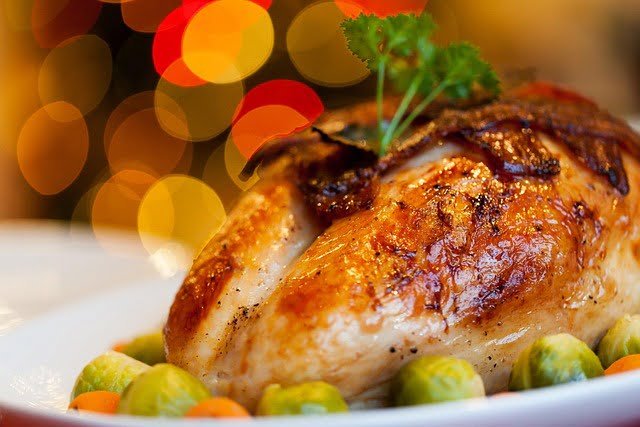Sugar gliders are popular pets known for their unique appearance and gliding abilities. As owners, it’s important to provide a balanced and appropriate diet to keep them healthy and happy. One common question that arises is, can sugar gliders eat turkey? In this comprehensive guide, we will delve into the dietary needs of sugar gliders, discuss the suitability of turkey in their diet, and provide recommendations for feeding your sugar glider.
Sugar Gliders: A Brief Overview
Before examining the question of whether sugar gliders can eat turkey, it’s crucial to understand these fascinating creatures. Sugar gliders are marsupials native to Australia, Indonesia, and Papua New Guinea. In the wild, they live in eucalyptus forests and are known for their remarkable ability to glide from tree to tree, covering distances of up to 150 feet.
As nocturnal animals, sugar gliders are most active during the night and spend their days sleeping in tree hollows. Their diet consists mainly of nectar, fruits, insects, and small vertebrates. In captivity, it’s essential to replicate their natural diet as closely as possible to ensure optimal health.

The Importance of a Balanced Diet for Sugar Gliders
A well-balanced diet is crucial for sugar gliders, as it helps maintain their health and vitality. Sugar gliders require a combination of carbohydrates, proteins, fats, vitamins, and minerals to thrive. In the wild, their diet is diverse and includes various plant and animal sources. In captivity, it’s important to provide a similar variety of food items to ensure that they receive all the necessary nutrients.
A sugar glider’s diet should consist of approximately 50% fruits and vegetables, 40% protein, and 10% nectar or other carbohydrate sources. Providing a balanced diet helps prevent deficiencies and health issues, such as metabolic bone disease or obesity. It’s also essential to offer a variety of food items to prevent boredom and ensure that your sugar glider receives a range of nutrients.
Can Sugar Gliders Eat Turkey
Now, let’s address the main question: can sugar gliders eat turkey? The short answer is yes, but with some considerations. Turkey is a suitable protein source for sugar gliders, as it is low in fat and high in protein. However, it’s important to ensure that the turkey is prepared correctly and fed in moderation.
Preparing Turkey for Sugar Gliders
When feeding your sugar glider turkey, it’s essential to choose lean, unprocessed cuts. Avoid processed turkey products like deli meats or turkey hot dogs, as they often contain added salt, preservatives, and other unhealthy ingredients. Instead, opt for fresh, boneless, and skinless turkey breast.
To prepare the turkey for your sugar glider, cook it thoroughly without any added oil, butter, or seasonings. Baking or boiling are the best cooking methods, as they do not add any extra fat. Once the turkey is cooked, allow it to cool and cut it into small, bite-sized pieces.
Feeding Frequency and Portion Sizes
As mentioned earlier, protein should make up approximately 40% of a sugar glider’s diet. However, it’s essential to offer a variety of protein sources, not just turkey. Insects, such as crickets and mealworms, are excellent protein sources and should be included in their diet.
When feeding turkey to your sugar glider, offer it as an occasional treat or in rotation with other protein sources. A small portion of turkey, about the size of a dime, is sufficient for one feeding. Overfeeding turkey or any protein source can lead to health issues, such as obesity or kidney problems.
Alternatives to Turkey for Sugar Gliders
While turkey can be a suitable protein source for sugar gliders, it’s essential to provide a variety of foods to ensure they receive all the necessary nutrients. Some other protein sources for sugar gliders include:
- Insects: Crickets, mealworms, and waxworms are all excellent protein sources for sugar gliders. They are also a natural part of their diet in the wild, making them an ideal choice.
- Chicken: Similar to turkey, chicken is a lean protein source that can be fed to sugar gliders. Ensure that it is unprocessed, cooked thoroughly, and served in small pieces.
- Eggs: Boiled or scrambled eggs can be offered as an occasional treat for sugar gliders. They are high in protein and provide essential nutrients, such as vitamin D and selenium.
- Commercial Sugar Glider Food: Many pet stores and online retailers sell specially formulated sugar glider food, which contains a balanced mix of nutrients. These can be a convenient option for busy owners, but it’s still essential to supplement with fresh fruits, vegetables, and insects.

Foods to Avoid for Sugar Gliders
While it’s important to provide a varied diet for your sugar glider, some foods should be avoided due to their potential negative impact on their health. These include:
- Avocado: While a nutritious food for humans, avocado is toxic to sugar gliders and can cause severe health issues.
- Chocolate: Chocolate contains theobromine, which is toxic to sugar gliders and can be fatal.
- Onions and Garlic: These vegetables contain compounds that can damage red blood cells in sugar gliders, leading to anemia.
- Grapes and Raisins: These fruits have been linked to kidney failure in some animals, including sugar gliders.
It’s also essential to avoid feeding your sugar glider any high-fat, high-sugar, or processed human foods, as these can lead to obesity and other health problems.
Monitoring Your Sugar Glider’s Health
Regularly monitoring your sugar glider’s health is crucial to ensuring they remain healthy and happy. This includes:
- Observing their eating habits: Ensure that they are consuming a balanced diet and not favoring one type of food over another.
- Checking their weight: Regularly weigh your sugar glider to ensure they are maintaining a healthy weight. Rapid weight gain or loss can be a sign of health issues.
- Monitoring their activity levels: Sugar gliders are naturally active and curious animals. A decrease in activity levels or lethargy can indicate potential health problems.
- Examining their appearance: Check your sugar glider’s fur, eyes, ears, and mouth for any signs of illness or injury.
If you notice any changes in your sugar glider’s behavior or appearance, consult a veterinarian experienced in treating exotic pets.
Final Thoughts
In conclusion, sugar gliders can eat turkey as a part of a balanced and varied diet. It’s essential to prepare the turkey correctly and feed it in moderation to ensure optimal health. Providing a range of protein sources, including insects, chicken, and commercial sugar glider food, will help meet your sugar glider’s nutritional needs. By offering a diverse diet and monitoring your sugar glider’s health, you can ensure they live a long, happy life as your beloved pet.





